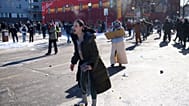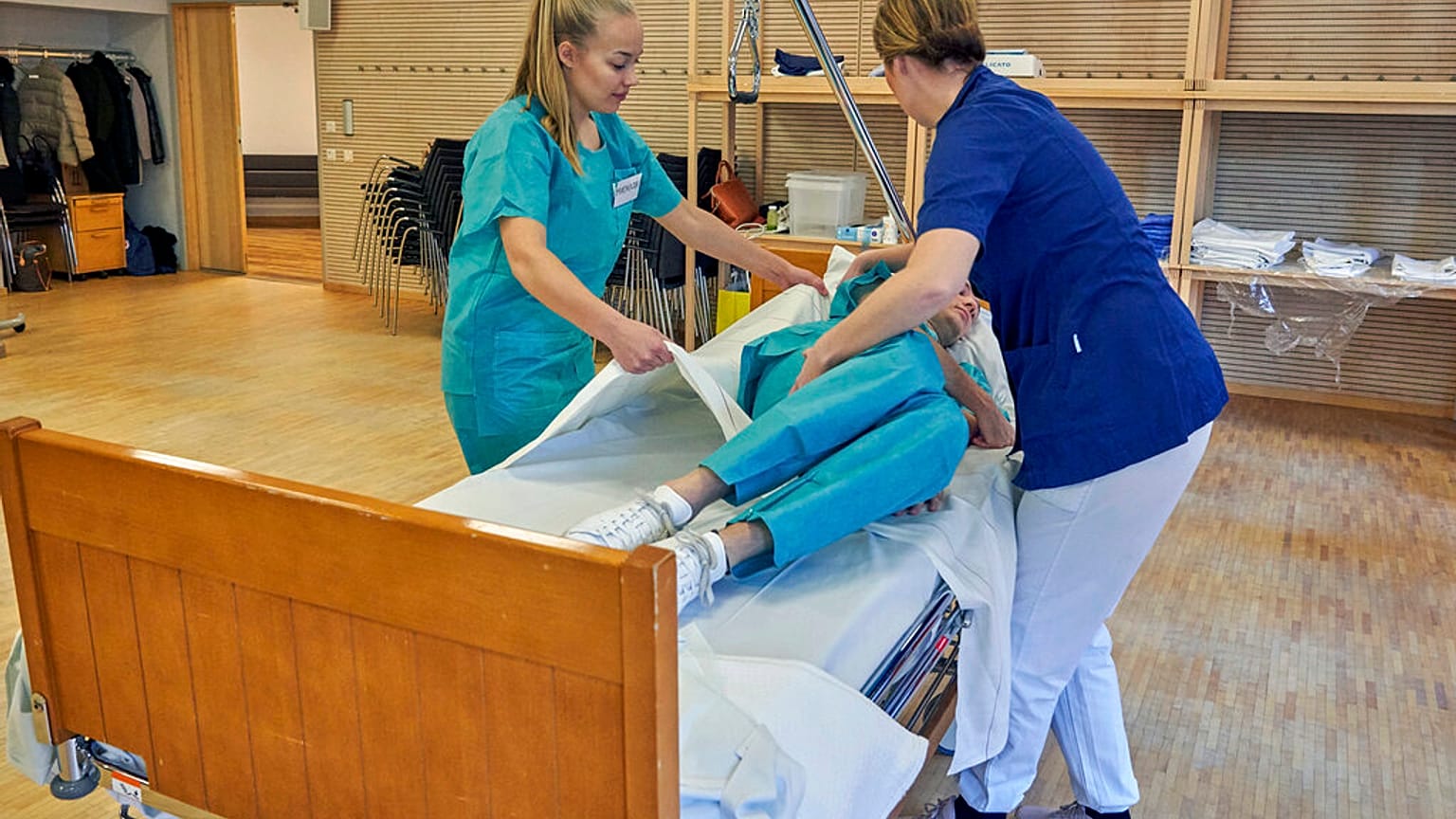One-in-three coronavirus-related death in Sweden has happened in care facilities for the elderly.
With no strict lockdown and less stringent restrictions than elsewhere in Europe, Sweden has taken what its state epidemiologist refers to as a "low-scale approach" to the COVID-19 pandemic.
But a nurse in a hospital in Nynäshamn, south of Stockholm, has argued that it is Sweden's older generation that is paying the price.
One-in-three coronavirus deaths in Sweden has taken place in care facilities for the elderly and Anders Tegnell, state epidemiologist and the architect of the country's approach, is alarmed.
"We see an increasing amount of cases in elderly homes and, of course, as we all know, that's the vulnerable part of the population, the part of the population that gets really ill and that's also where we have the mortality and that's a very unfortunate development," Tegnell said.
Failing to protect the elderly
Sonja Aspinen moved to Sweden from Finland 20 years ago and founded a healthcare staffing company.
Over the last few weeks, she has mostly looked after the elderly, and in particular coronavirus patients.
In one of the worst-affected regions in Sweden, she says older people are paying the heaviest price.
"I believe that staff have caused many infections, especially in nursing homes. At the beginning it was relatives. I believe that it has been brought in from outside to nursing homes and there has been a failure to protect the elderly," Aspinen said.
Nursing Home staff have complained they are not receiving enough protective gear and Aspinen says they have not been properly tested.
"There has not been a will to test us systematically, at least in those places where I have worked. Even there have been people with symptoms, but they have not been tested."
The government says that last week's sharp rise in cases can partly be explained by an increase in testing in hospitals and care homes.
But nurse Aspinen says testing isn't the only issue. She explains that a lack of care workers has led to some entering the field with too-little training and a lack of language and hygiene skills.
A different approach
Authorities in Sweden have banned gatherings of more than 50 people and barred visits to nursing homes, telling people over 70 or feeling ill to self-isolate. But the government has not imposed harsh lockdown measures. Instead, it asked citizens to take responsibility and practise social distancing.
Shops, bars and primary schools have remained open. But last week several establishments were closed in the capital after social distancing measures were flouted and large crowds of people sat in the sun in front of bars and restaurants.
Sweden has been criticised by many doctors and scientists for its "relaxed approach" to the pandemic. For some, this strategy has led to more deaths In Sweden than for its neighbours.
The country has registered over 2100 deaths so far. In stark contrast, Denmark, with just over half the population has registered 422 COVID-19 related deaths and Norway only 193. Both countries imposed early lockdowns to curb the virus’s spread.















